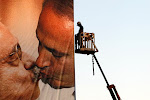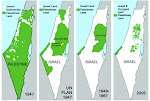Israeli Defence Chief Barak denies sleaze

It's not only that stateside Barack who's in the news with his lovely wife. Israeli's Barak has been getting coverage too, but not quite as adulatory. (The Baraks' back-story is quite unusual: they wed 40 years after they first met, and ditched their respective spouses to do so. The couple is pictured on their wedding day last summer, above.) The Independent's Matthew Bell recaps the latest twist in the tawdry tale:
Poll ratings for Israel's Labour Party are in freefall following a sleaze scandal involving cash-for-access, Nili Priel, the wife of Ehud Barak, the Defence Minister, is alleged to have offered to set up meetings between decision-makers and foreign investors in exchange for cash.
The claim was made by the TV news station Channel 10, which showed a document issued by Mrs Priel's consultancy company, promoting her networking skills. It said: "There are 800-900 senior decision-makers in Israel. Mrs Priel knows most of them personally." The business was shut down immediately after the broadcast, but not before her husband suffered a significant slide in his ratings. According to one poll, if elections were held now, Labour would win only 12 seats in the Knesset. It currently has 20.
Mr Barak has denied the allegations , and claimed his wife's decision to close her company was "to prevent attempts, no matter how groundless, to delegitimise me." As Labour Party leader, he should be a contender to take over from Ehud Olmert, when he steps down as Prime Minister next month, after charges of corruption.





























